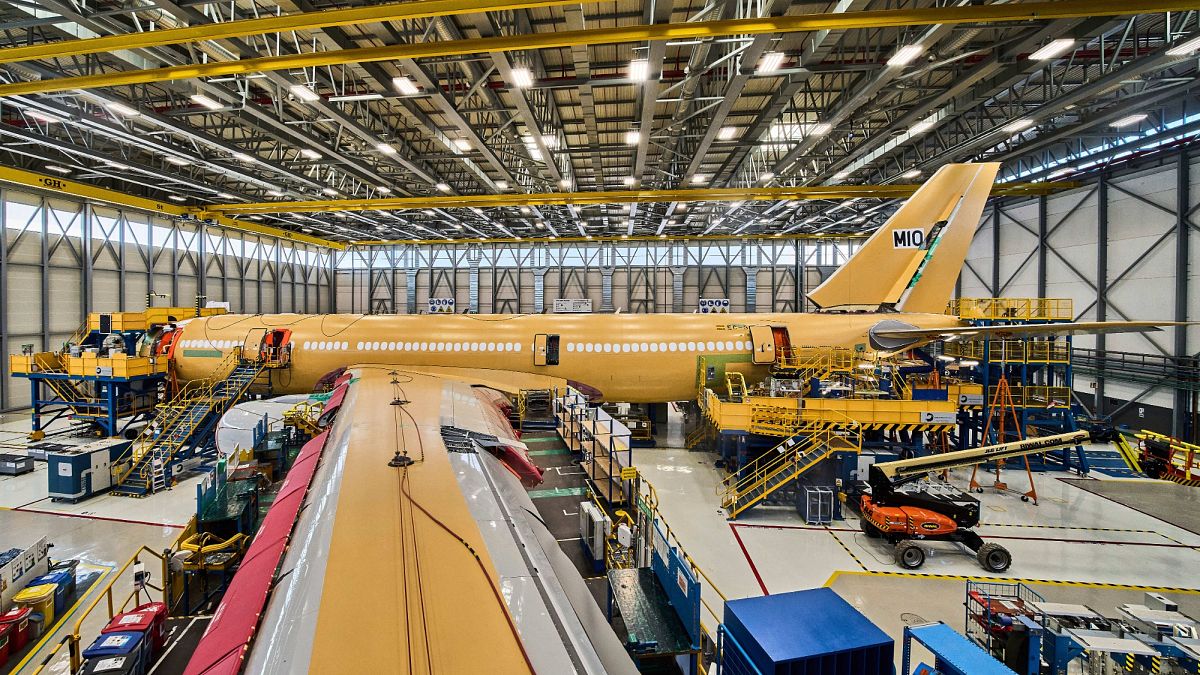

In recent developments across Europe and Canada, signs of economic growth and cooperation are emerging. These changes, spanning various sectors, reveal a mindful progression towards improvement and collaboration in the international landscape. From increasing job opportunities in the defense sector in Europe to strategic investments from global companies, and resumed trade conversations between Canada and the United States, these advancements signal an optimistic shift towards enhanced economic interactions and regional development.
Across Europe, a notable rise in job opportunities within the defense sector highlights a significant trend. With the European Union’s defense spending increasing by more than 30% from 2021 to 2024, the sector has seen a surge in labor demand, outpacing the general job market since 2022. This growth underlines a strong focus on security priorities, reflecting a regional commitment to ensuring stability and resilience in turbulent times. Such a positive upswing in job postings not only offers new career opportunities but also indicates a broader focus on strengthening defense capabilities, which resonates with the collective objective of building a secure future.
In a parallel development, international investments are threading new avenues for growth and expansion. The Spanish manufacturing leader, Roca Group, has announced its plans to invest €70 million in constructing a factory in Kazakhstan. This initiative is a progressive step towards expanding business in Central Asia. The investment moves beyond financial implications; it embodies a bridge for cross-regional collaboration, promoting economic ties and industrial advancements. Roca Group’s decision to develop its presence in Kazakhstan exemplifies the global trend towards harnessing new markets for sustainable growth.
Meanwhile, on the North American continent, the trade dialogue between Canada and the United States signals a restoration of economic relations. After Canada rescinded its digital tax which had previously stirred tensions during Donald Trump’s administration, trade talks between the two nations have resumed. This development marks a constructive progression as it paves the way for renewing collaborative trade agreements. While the initial imposition of tariffs related to combatting fentanyl smuggling presented challenges, the recent pivot to resume negotiations highlights a pragmatic approach. It underscores the mutual goal of facilitating trade flows under fair and balanced terms.
In a broader perspective, the European Union’s position on global trade reflects both opportunity and responsibility. With geopolitical tensions and market uncertainties prevalent across the globe, Europe stands at a crucial juncture with the potential to significantly shape the future of global trade. As Frank Niederländer from BMW articulates, the core question lies not in the continuity of globalization but in determining its leadership and structure. Europe has the capability to guide the global trade agenda; however, introspection is needed to overcome internal hurdles and effectively harness this opportunity. This strategic reflection will empower Europe to engage robustly on the global stage, contributing to shaping a balanced and cohesive trade ecosystem.
These stories of progress and cooperation contribute to a mosaic of positive energy and potential. By embracing these initiatives and fostering open dialogues, the international community can continue to march towards a shared future marked by economic and societal wellbeing. Such mindful strides are a testament to the enduring spirit of worldwide partnership and the unwavering quest for improved lives and communities.
Source: {link}
